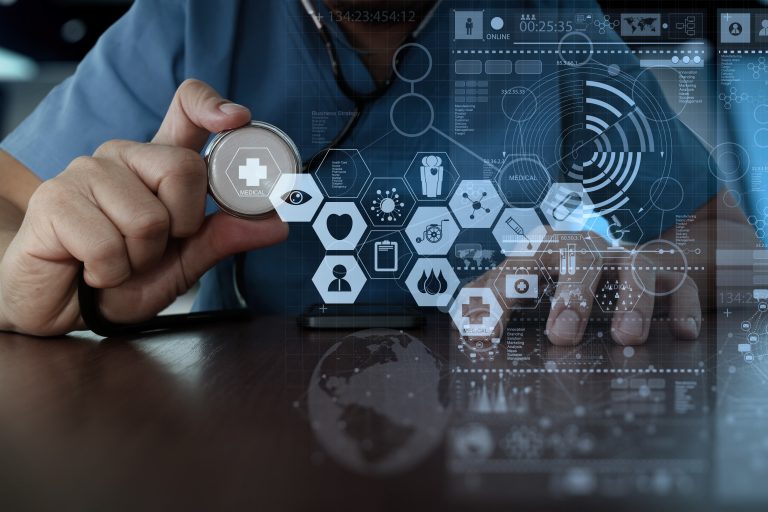In an age where technology permeates every aspect of our lives, its impact on health and wellness is profound. While concerns about technology leading to sedentary behavior and social isolation are valid, the myriad health benefits that technology offers cannot be overlooked. From improving healthcare access to enhancing mental well-being, technology is revolutionizing how we approach our health. In this article, we will explore 12 significant health benefits of technology.
1. Improved Access to Healthcare
One of the most significant advantages of technology in healthcare is improved access. Patients can now access medical services and information online, which is especially beneficial for individuals living in remote or underserved areas. The rise of online consultations and digital health platforms means that geographical barriers to healthcare Adderall kaufen niederlande are slowly being dismantled.
Benefits:
- Convenience: Patients can receive consultations without the need to travel.
- Reduced Waiting Times: Many online services offer quicker access to healthcare professionals.
- Increased Coverage: More patients can receive care, especially those with mobility issues or chronic conditions.
2. Telemedicine Services
Telemedicine has emerged as a game-changer in healthcare delivery. It allows patients to consult healthcare providers via video calls, phone calls, or messaging. This convenience is invaluable for those who may not be able to visit a clinic due to health, mobility, or time constraints.
Benefits:
- Cost-Effective: Reduces travel costs and time off work.
- Access to Specialists: Patients can consult experts who may not be locally available.
- Continuity of Care: Regular follow-ups can be conducted without needing in-person visits.
3. Health Tracking Applications
Health tracking apps have become increasingly popular, allowing users to monitor various aspects of their health. These applications can track diet, exercise, sleep, and even stress levels, enabling users to take proactive steps towards better health.
Benefits:
- Goal Setting: Users can set personal health goals and track their progress.
- Behavior Modification: Insights gained from tracking can lead to healthier lifestyle choices.
- Data Analysis: Many apps provide analytical tools to help users understand their health trends over time.
4. Wearable Fitness Devices
Wearable technology, such as fitness trackers and smartwatches, has gained significant traction. These devices monitor physical activity, heart rate, sleep quality, and more, encouraging users to stay active and healthy.
Benefits:
- Motivation: Users receive real-time feedback and encouragement to meet their fitness goals.
- Health Monitoring: Continuous monitoring can alert users to potential health issues, such as irregular heartbeats.
- Personalized Recommendations: Many wearables offer tailored fitness plans based on individual performance and health data.
5. Mental Health Support
Mental health has gained increased attention, and technology offers several tools for support. From meditation apps to online therapy platforms, technology provides resources to help individuals manage stress, anxiety, and depression.
Benefits:
- Accessibility: Users can access mental health resources anytime and anywhere.
- Anonymity: Online platforms provide a level of privacy that may encourage more individuals to seek help.
- Diverse Resources: From guided meditations to cognitive behavioral therapy (CBT) techniques, there’s something for everyone.
6. Educational Resources
Technology has transformed the way we access health information and education. Online courses, webinars, and informative websites allow users to educate themselves about health conditions, preventive measures, and wellness strategies.
Benefits:
- Empowerment: Knowledge is power; informed individuals can make better health decisions.
- Diverse Learning Formats: Users can choose from videos, articles, and interactive courses to suit their learning preferences.
- Community Support: Many platforms offer forums or discussion groups for shared experiences and encouragement.
7. Enhanced Communication with Healthcare Providers
Technology facilitates better communication between patients and healthcare providers. Secure messaging platforms and patient portals enable patients to ask questions, schedule appointments, and access test results easily.
Benefits:
- Timely Responses: Patients can receive prompt answers to their queries, reducing anxiety.
- Efficiency: Streamlined communication leads to better organization and fewer missed appointments.
- Informed Decisions: Enhanced communication helps patients make informed choices regarding their healthcare.
8. Remote Patient Monitoring
Advancements in technology have made remote patient monitoring a viable option for managing chronic illnesses. Healthcare providers can monitor patients’ vital signs and health data remotely, allowing for timely interventions when necessary.
Benefits:
- Continuous Care: Patients receive ongoing monitoring without frequent visits to the clinic.
- Early Detection: Any anomalies can be detected early, leading to timely medical intervention.
- Patient Empowerment: Patients can take an active role in managing their health with real-time data.
9. Access to Health Information
The internet is a vast resource for health information, providing access to a wealth of knowledge. Patients can research symptoms, treatments, and wellness tips, empowering them to take control of their health.
Benefits:
- Informed Decisions: Patients can make better choices regarding their health and treatments.
- Awareness: Increased awareness of health issues leads to proactive health management.
- Community Engagement: Online health forums and social media groups foster discussions and shared experiences.
10. Promoting Physical Activity
Technology plays a vital role in promoting physical activity through fitness apps, online classes, and community challenges. These resources encourage users to stay active and engaged in their fitness journeys.
Benefits:
- Variety of Options: Users can choose from a wide range of workouts and activities to keep things interesting.
- Social Accountability: Many platforms offer community features that allow users to share progress and motivate one another.
- Convenience: Online workouts can be done from the comfort of home, making it easier to fit exercise into busy schedules.
11. Personalized Medicine
Technology is paving the way for personalized medicine, where treatments are tailored to individual genetic profiles and health conditions. This innovative approach enhances treatment effectiveness and minimizes adverse side effects.
Benefits:
- Targeted Treatments: Personalized medicine leads to more effective treatment plans based on individual needs.
- Improved Outcomes: Tailored therapies can lead to better health outcomes and increased patient satisfaction.
- Ongoing Research: Continuous advancements in technology and genetics contribute to the evolving field of personalized medicine.
12. Emergency Response and Management
Technological advancements have significantly improved emergency response systems. With GPS tracking, mobile apps, and instant communication tools, emergency services can respond more effectively to medical crises.
Benefits:
- Quick Response Times: Enhanced communication and tracking ensure that help arrives swiftly.
- Real-Time Data Sharing: Emergency responders can access critical health information, enabling better care on arrival.
- Community Safety: Technology plays a crucial role in public health and safety, especially during crises.
Conclusion
The integration of technology into healthcare offers numerous health benefits that enhance our physical and mental well-being. From improved access to telemedicine and health tracking applications to mental health support and personalized medicine, technology continues to revolutionize how we manage our health Adderall kaufen. By embracing these innovations, individuals can lead healthier, more informed, and empowered lives.
As technology continues to advance, it’s essential to stay informed and make the most of these resources. Whether you’re looking to improve your fitness, manage a chronic condition, or support your mental health, technology can provide the tools you need for a healthier lifestyle.



